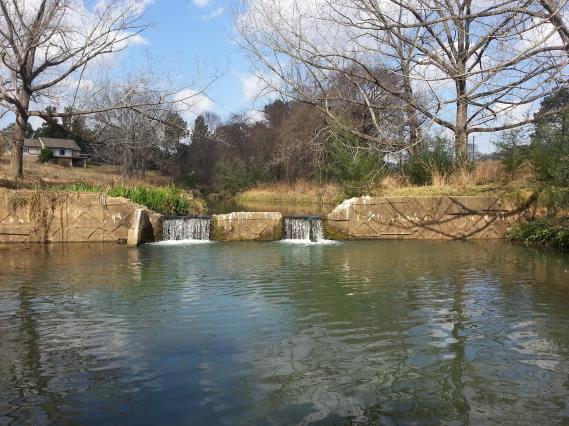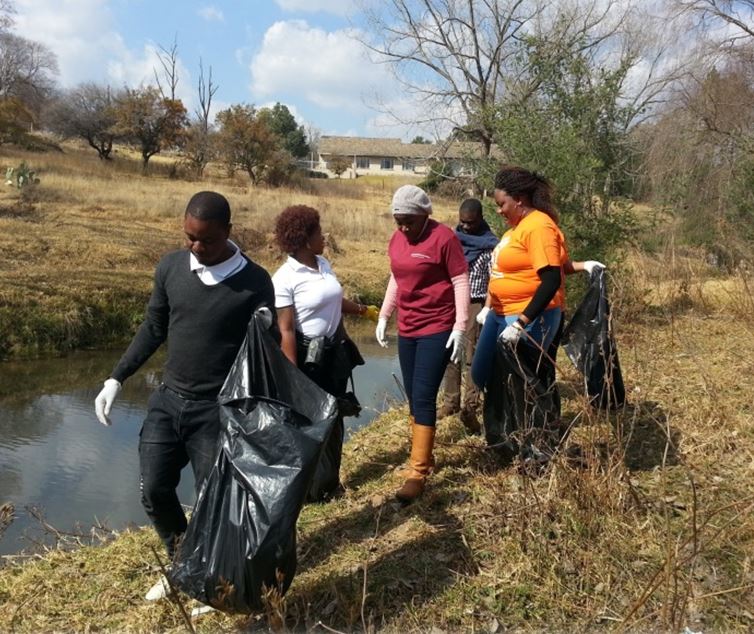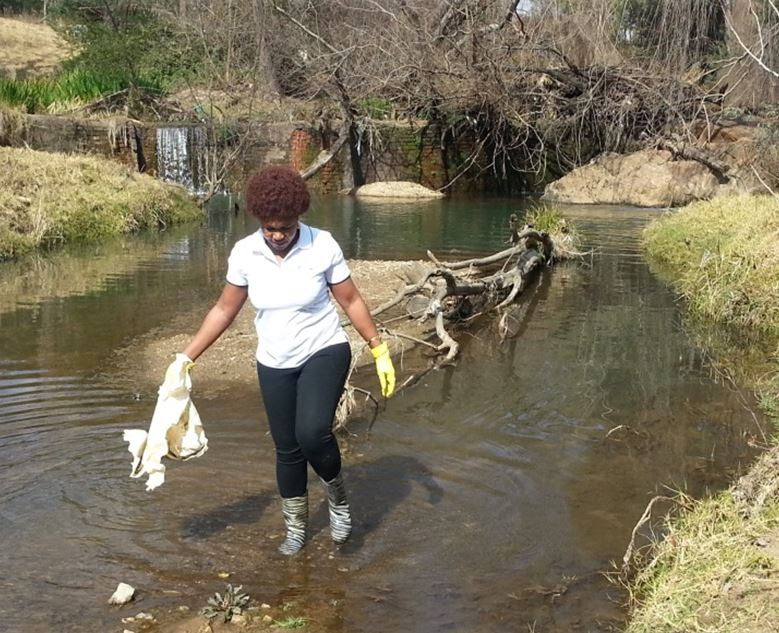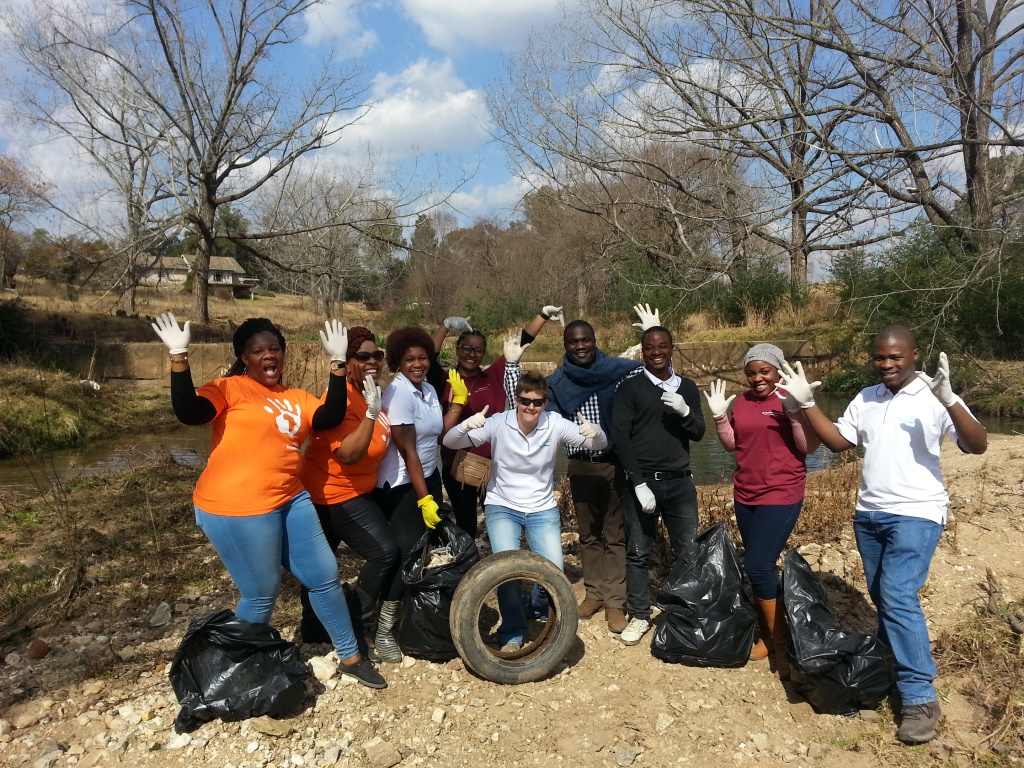“Mandela Day is a global call to action for citizens of the world to take up the challenge and follow in the formidable footsteps of Madiba, a man who transformed his life, served his country and freed his people. Its objective is to inspire individuals to take action to help change the world for the better and in so doing, to build a global movement for good”. (Nelson Mandela Foundation, 2016)
 The Nelson Mandela Foundation recognises four broad thematic areas in which people are encouraged to get involved and become agents of change: Food Security, Education and Literacy, Shelter, and Infrastructure and the Environment. On 18 July 2016, the IWSN Africa team took up the challenge and heeded the call of Mandela Day by undertaking a river cleanup on a small river near Monash South Africa. A systematic assessment of river biodiversity in South Africa found that 84% of river ecosystems are threatened, with 54% critically endangered which added to the importance of undertaking such an activity.
The Nelson Mandela Foundation recognises four broad thematic areas in which people are encouraged to get involved and become agents of change: Food Security, Education and Literacy, Shelter, and Infrastructure and the Environment. On 18 July 2016, the IWSN Africa team took up the challenge and heeded the call of Mandela Day by undertaking a river cleanup on a small river near Monash South Africa. A systematic assessment of river biodiversity in South Africa found that 84% of river ecosystems are threatened, with 54% critically endangered which added to the importance of undertaking such an activity.

 This small perennial river has its headwaters in the Klipriviersberg area and eventually meets up with the Crocodile River, which joins the great Limpopo River on the border with Botswana. We observed that the flow of the river has been modified through a series of small weir systems but the general appearance of the river ecosystem appeared to be healthy. Due to the weir systems we didn’t observe any fish or invertebrate species but there were a number of bird and insect species. PhD candidate Machaya Chomba reminded us that every river has a story to tell: “…a narrative of how people have lived in the past and how they continue to live, and the river helps tell that story. The river also tells a story about itself, showing us the different river courses it has taken and man-made structures that have become part of the river. Like ‘scars’ on a body, the river shows its resilience in the face of change. It is a good reminder of the dynamics of socio-ecological systems.”
This small perennial river has its headwaters in the Klipriviersberg area and eventually meets up with the Crocodile River, which joins the great Limpopo River on the border with Botswana. We observed that the flow of the river has been modified through a series of small weir systems but the general appearance of the river ecosystem appeared to be healthy. Due to the weir systems we didn’t observe any fish or invertebrate species but there were a number of bird and insect species. PhD candidate Machaya Chomba reminded us that every river has a story to tell: “…a narrative of how people have lived in the past and how they continue to live, and the river helps tell that story. The river also tells a story about itself, showing us the different river courses it has taken and man-made structures that have become part of the river. Like ‘scars’ on a body, the river shows its resilience in the face of change. It is a good reminder of the dynamics of socio-ecological systems.”
 Armed with plastic gloves and large black dustbin bags the team got to work, walking down the river collecting all visible rubbish items along one side of the river bank. Some members even ventured into the river to collect plastics which had aught on tree debris on small sandy islands.
Armed with plastic gloves and large black dustbin bags the team got to work, walking down the river collecting all visible rubbish items along one side of the river bank. Some members even ventured into the river to collect plastics which had aught on tree debris on small sandy islands.
The team collected six dustbin bags of rubbish which consisted predominantly of hard and soft plastic products – old shopping packets, drinking bottles and linings made up to 90% of the waste collected. The team also found an old car tyre, a shoe and sections of rusty wire. Hardly any glass or tin products were found, possibly because they had sunk in the river system along the way or were trapped behind the weir walls.
The team were extremely excited about the contribution they had made, both for Mandela Day and towards the overall improvement of river health. One MPhil student reflected on the experience: “The river cleanup was awesome, I really enjoyed interacting with the wider IWSN team and feel privileged to have contributed towards Mandela day. We must remember it is everyone’s responsibility to make sure that rivers are not polluted and we need to be the agents of change in ensuring this happens.” IWSN Africa plans to adopt this river and make the river cleanup a regular event.

